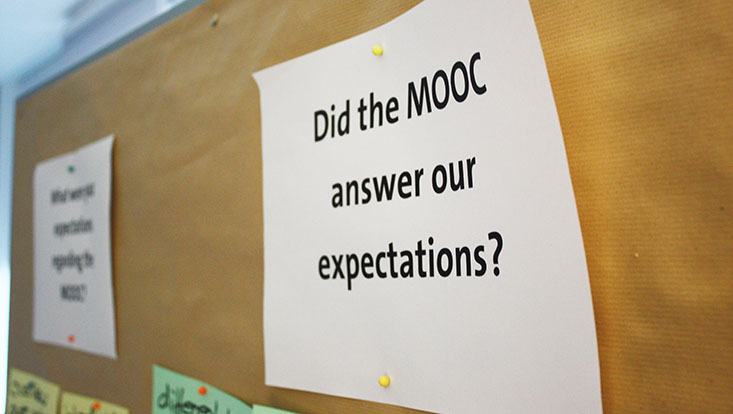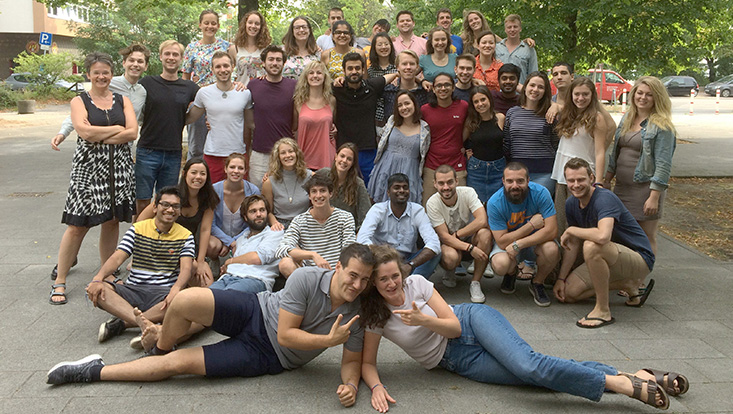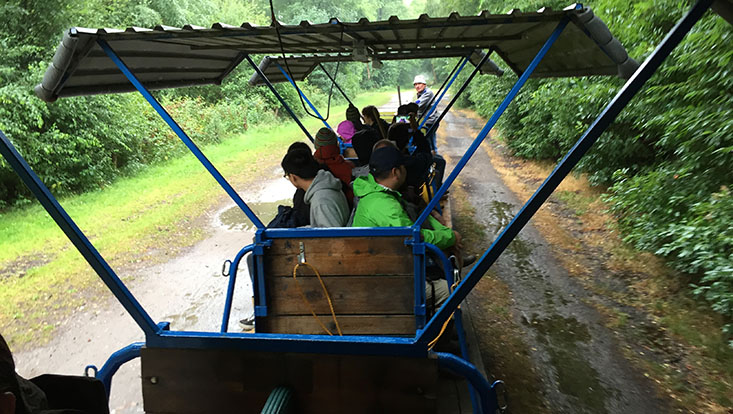Online learning for climate studies
29 January 2018, by Lisa Wolf

Photo: UHH/CEN/Wolf
This semester, for the first time, the online course “Climate Change, Risks and Challenges” was made a mandatory component of the Master’s degree program at the School of Integrated Climate System Sciences (SICSS). Students, organizers and instructors alike are pleased with the results.
As a “Massive Open Online Course” – or MOOC for short – the course was part of a first-semester introductory seminar in the international degree program. Prior to starting the course, many students were skeptical: after all, they already had a broad background in the natural sciences, so how was the MOOC supposed to offer them new insights?
“Especially the social sciences and socioeconomic parts of the course were completely new to me,” enthuses Ji hye Jeong, whose statement reflects the experience of many students. In contrast, the natural sciences lessons were less challenging for many students, as had been expected. Overall, the MOOC offered an excellent overview of the current state of research. “What I liked best was that so many current examples were used in the course,” adds Joana Kollert, another Master’s student.
“With the climate MOOC, our climate research association has for the first time dared the leap from communication to education,” says Marie-Luise Beck from the German Climate Consortium (DKK), which jointly designed the online course with the WWF. Further, the new English-language edition is particularly well suited for use at universities around the globe. “The discussion showed us that users’ needs can vary considerably. For our students, the chapters on the social and business sciences were particularly difficult; for members of the general public, the natural sciences sections are often the hardest. Thanks to the MOOC’s modular structure, the content can easily be adapted to the specific audience,” explains Beck. The students’ overall feedback was crystal clear: the online course should continue to be part of the first-semester curriculum.
The climate MOOC
In the online course, some of Germany’s leading climate researchers convey a basic grasp of climate change – clearly and concisely. Among others, many researchers from the Cluster of Excellence for climate research CliSAP participated:
- Prof. Anita Engels
- Prof. Michael Brzoska
- Prof. Hermann Held
- Prof. Jürgen Scheffran
- Prof. Beate Ratter
- Prof. Jochem Marotzke
Together they explain the causes and effects of climate change, and how its impacts can be mitigated. The course is tailored to those individuals seeking deeper insights into the subject matter, e.g. students, instructors and academic researchers, climate protection and energy managers, companies that wish to do their part in protecting the environment, political decision-makers and journalists. In addition to addressing the scientific fundamentals, it discusses various options for taking remedial action. Register free of charge, and find further information.


